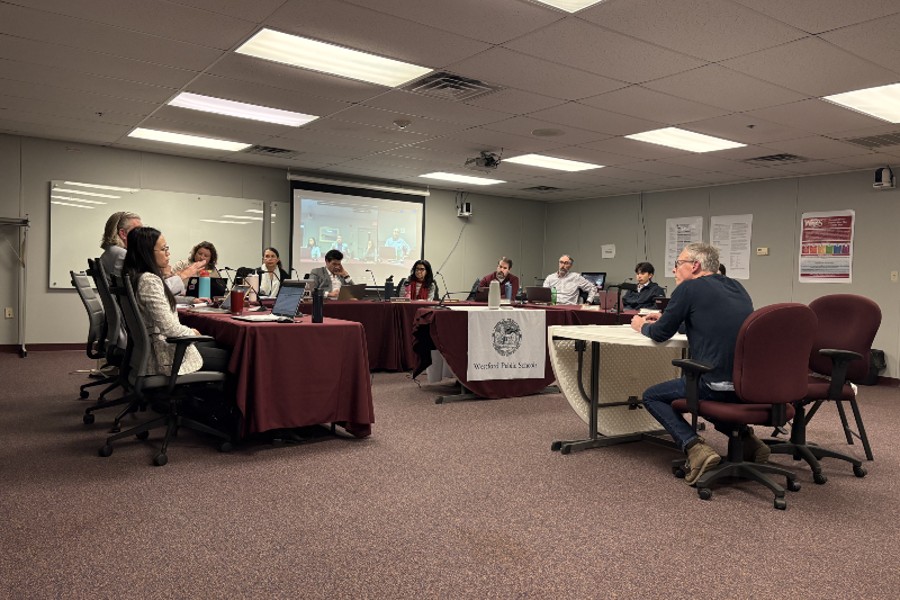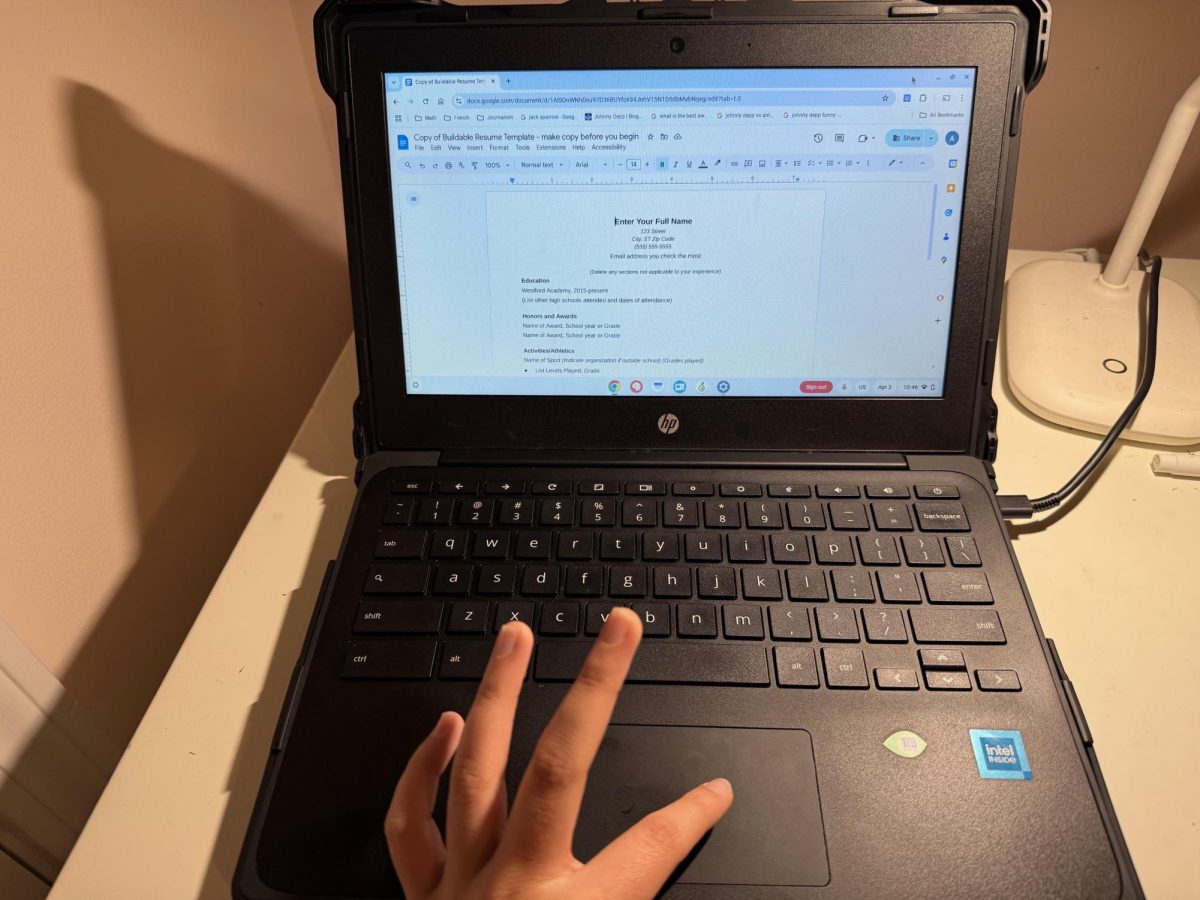Students, parents, and teachers spoke during the school committee’s FY26 budget hearing on Monday, Jan. 6. WA Music students shared the impact of the current reductions on the music department, urging for more staffing, while parents advocated for the reduction of the physical education (P.E.) department at WA in order to alleviate the budget cuts in other departments.
Music students speak on the impacts of their department cuts
This year, the allocation of FTEs for the WA music department was reduced from 2.0 to 1.0 FTEs, losing an orchestra teacher in the process. Though the original plan was to keep 1.4 FTEs, the 0.4 FTE was moved to the foreign language department in order to reduce the impacts of combining levels.
To accommodate these changes, WA music teacher and instructor Adam Shekleton is working full time, taking on the responsibility of both band and orchestra classes, as well as serving as the adviser for a variety of after school music clubs. The reductions took a significant toll on the orchestra program, having lost a teacher, and further amplifying their high teacher turnover rate.
“[Mr. Shekleton] does so much considering [there is] marching band, Salsa band, and a million different bands. It’s hard when us orchestra students, we used to have Troubadours but we couldn’t start that for months this year because of marching band,” sophomore orchestra student Maria Reuther said. “It’s not his fault, and it’s one person with a million things on his plate, and I think that if we had another person, we could achieve the level of excellence that we have in our academics and music.”
According to senior orchestra board president Isabella Hesse, while there are currently five seniors in orchestra due to the effects of COVID from previous years, the sophomore and freshman classes are seeing much growth, with around 20 sophomores and 30 freshmen.
“I think it’s unsustainable to be only thinking about enrollment now when there’s a very likely chance that enrollment is going to increase,” Hesse said. “I think it is a disservice to all of the music students that have been committed and all of the music students who are going to be newly enrolling in music programs as they move up into the high school.”
Parents push for P.E. reductions
WA parent Patty Huang proposed a new plan that would cut the P.E. budget in half, raising the number of P.E. students in each class from 31 to 62. Huang’s plan would fit within the seven block schedule and will not impact the graduation requirements, with classes A and B operating under one teacher, one doing an individual activity while the other is receiving instructor, and switching. According to Huang, schools like Acton-Boxborough are already using this approach.
While student representatives seniors Maddie Poirier and Daniel Wang acknowledged the flexibility these reductions would give students, they did raise the issue of safety, and whether having such big class sizes would be too much to handle for the teachers.
“[In the proposed scenario], if you have 31 students with one teacher, while the 31 maybe aren’t necessarily supervised, […] there could be other things going on that the teacher might not be aware of, and that could potentially be a safety concern as well,” Wang said.
During the meeting, many parents were vocal in reducing P.E. to give students room in their schedules and funding the AP classes and the departments they feel most passionate about.
“As our students progress and they grow, we’re asking different things about them as students […] thinking about their life post WA […]. Something that I think is special about WA […], is that we really try and foster the interests and talents of our students,” WA parent and WPS teacher Megan Eckroth said. “[And yet, we’re taking that away from them, saying] ‘Well, you don’t have time in your schedule to take that because you’re doing [P.E.] instead four times per week as a senior’.”
Reductions to math and reading interventionists
Speaking at the meeting, WA parent and Abbot math interventionist Christina Pelta shared her experiences following the new standards of giving students intervention, looking at the lowest 30th percentile of the nation, rather than the lowest 20th percentile in each grade level. While the FY26 budget projects reducing the number of math and reading interventionists from 24.2 FTEs to 15.0 FTEs as a result of the decreasing intervention across schools, the interventionists cite this decrease comes as a result of the new standards.
“Now we’re hearing from teachers, ‘why can’t you pick the student up?'” Pelta said. “When we were meeting in the classroom with the entire class in small groups, we were feeling like we should have picked some students up, but they didn’t meet the requirement. So it doesn’t feel like the requirement was quite on mark.”
Listening to the impacts of the cuts on WA departments and the loss of reading and math interventionists across schools, the school committee spoke about their concerns for maintaining the level of education that characterizes Westford. When asked by WPS parent James Winder of their long-term plan, the committee expressed giving priority to all departments.
“There’s a very strong commitment of all the volunteers on this committee and the school to continue to deliver a quality education that advances on justice and equity and really holds up like the arts as well as serves our both our special needs students as well as our honors students,” school committee member Marisol Garcia said. “Our overarching mission is still to deliver a quality education for all of our students, and so that hasn’t changed. It’s just unfortunate that we are in a climate where financial financial realities are a little bit stark right now.”








